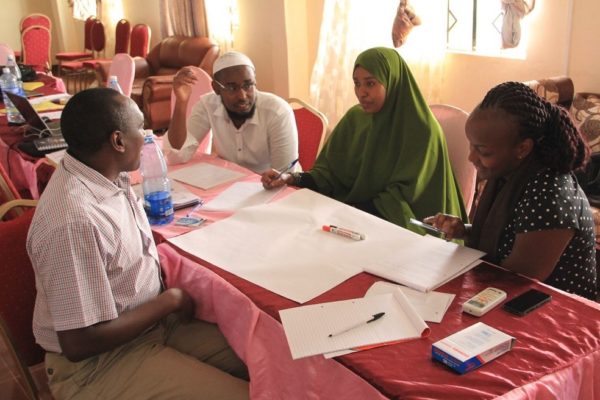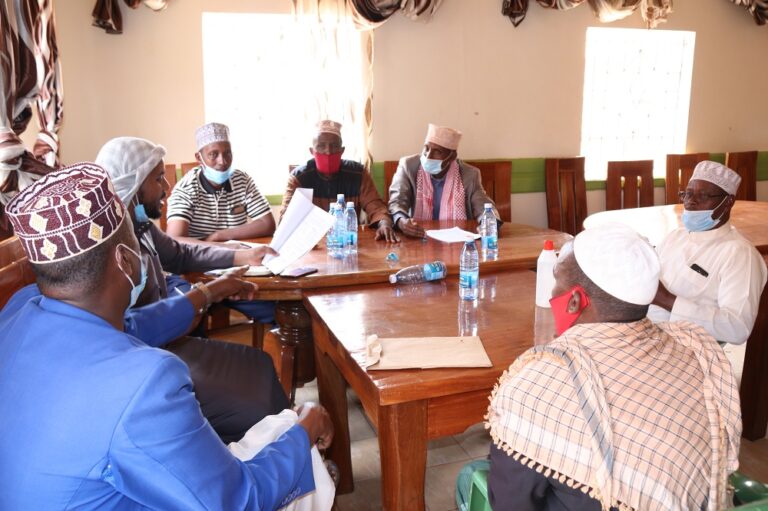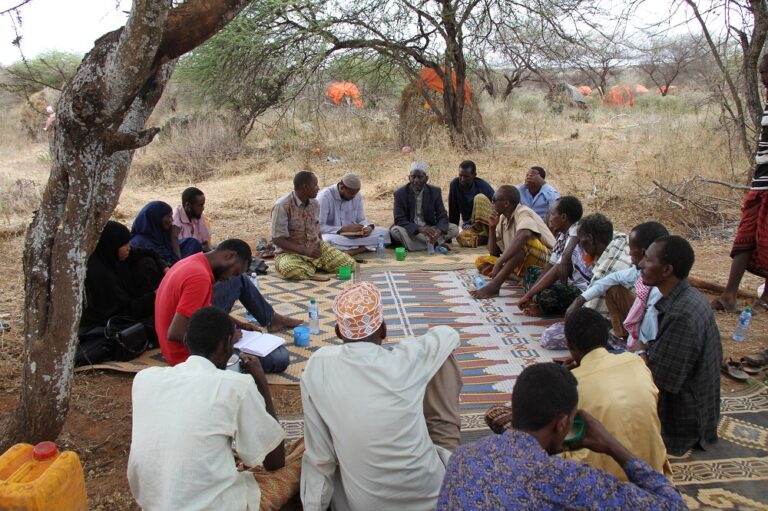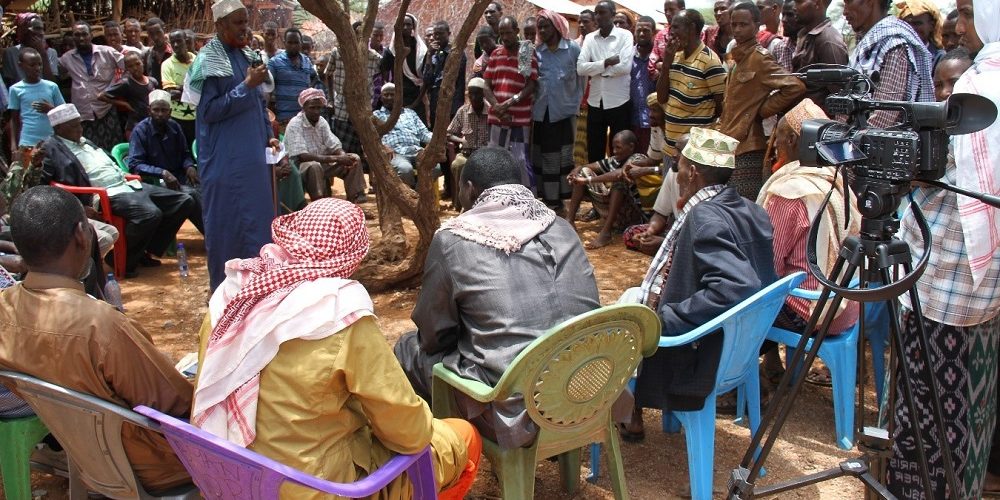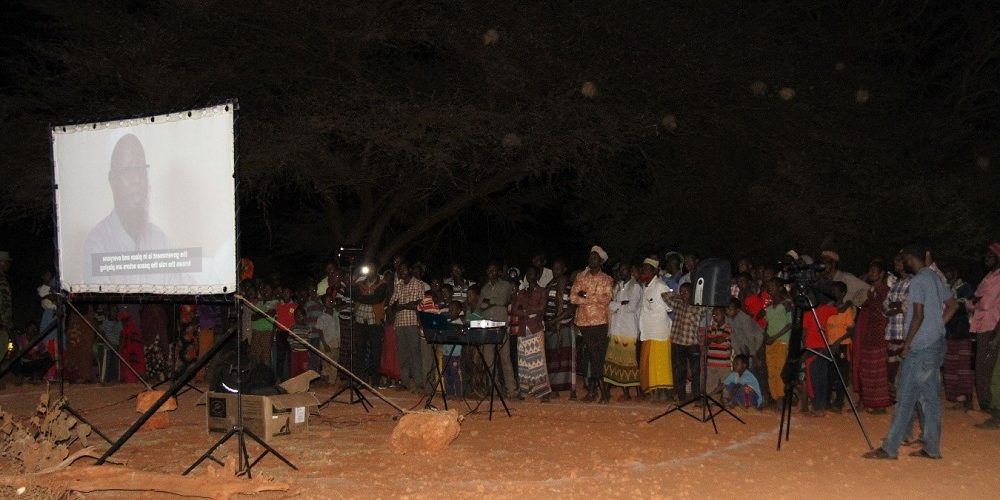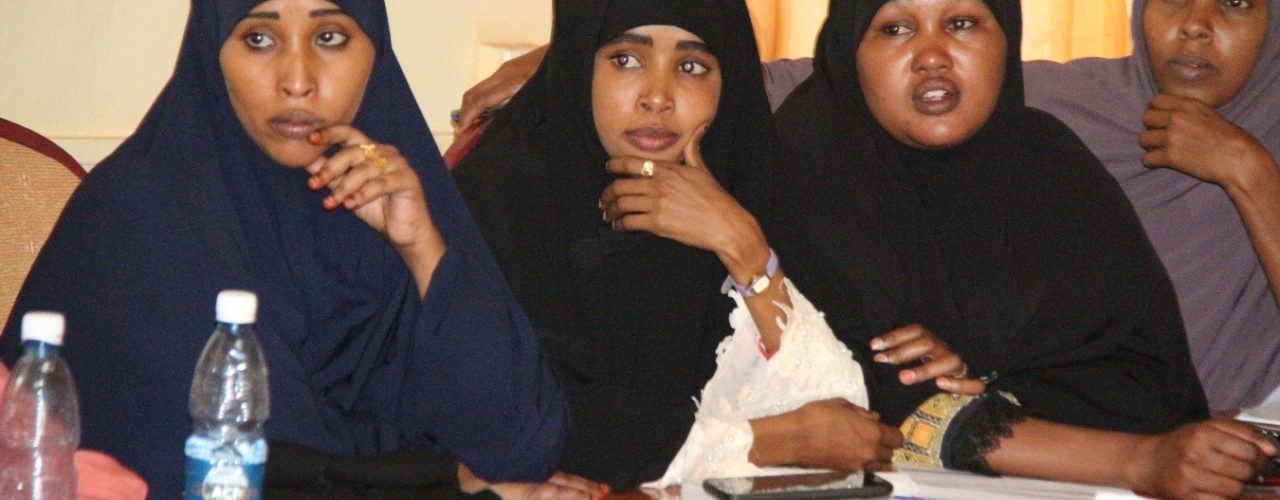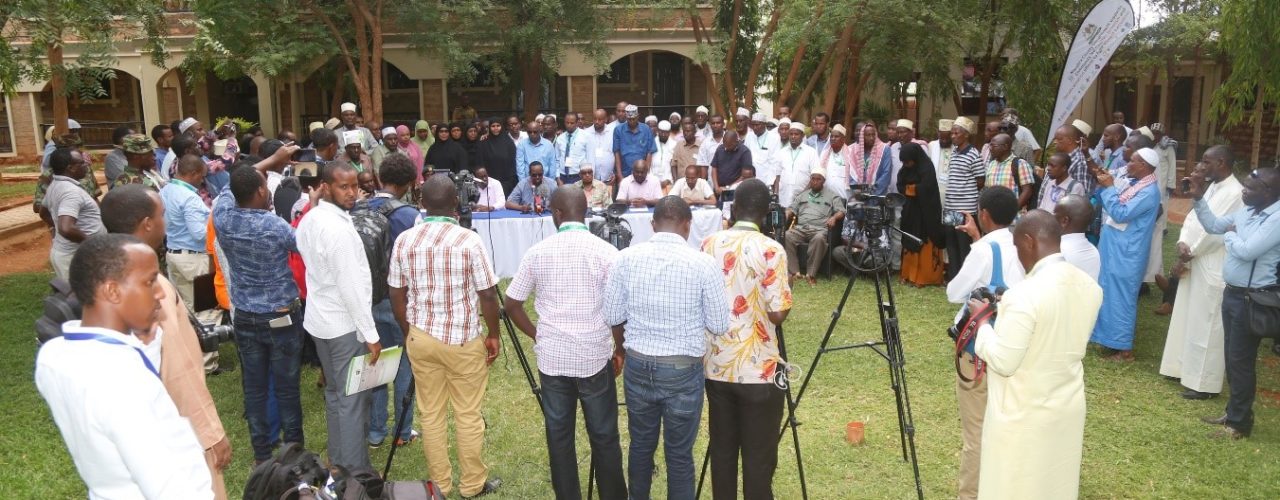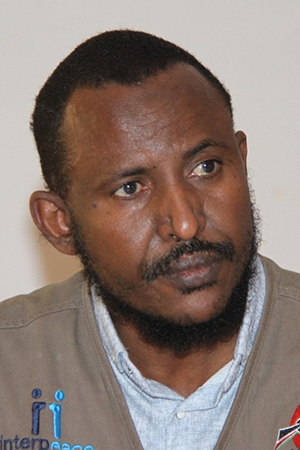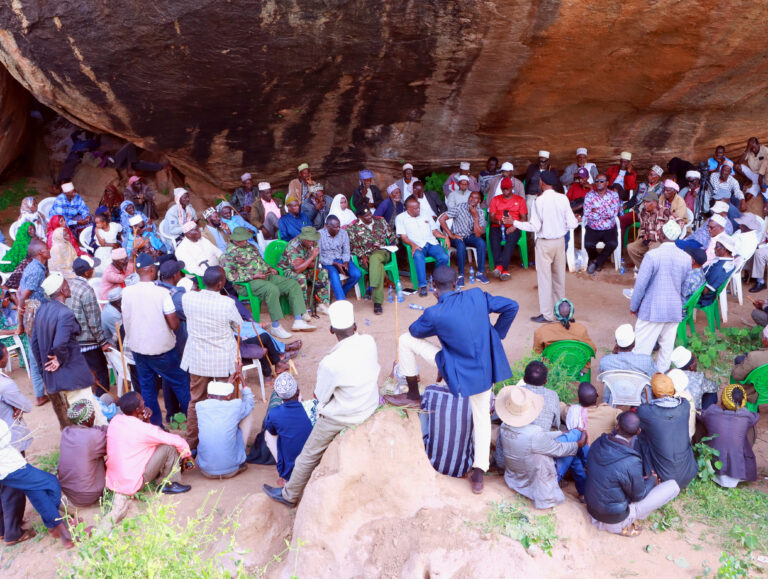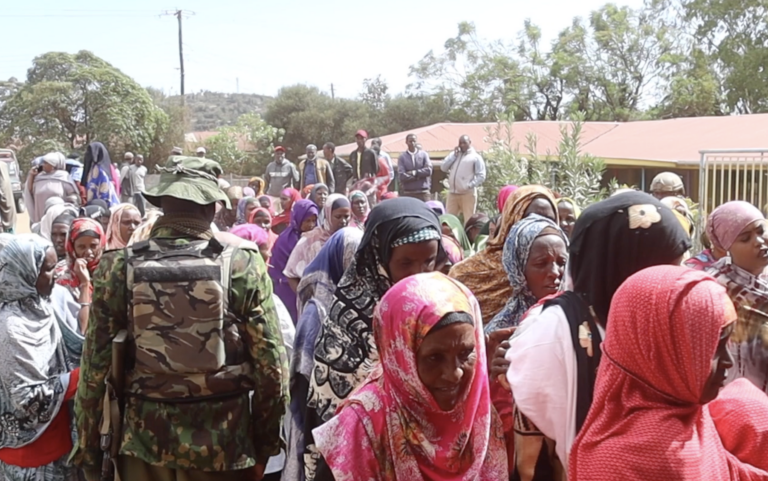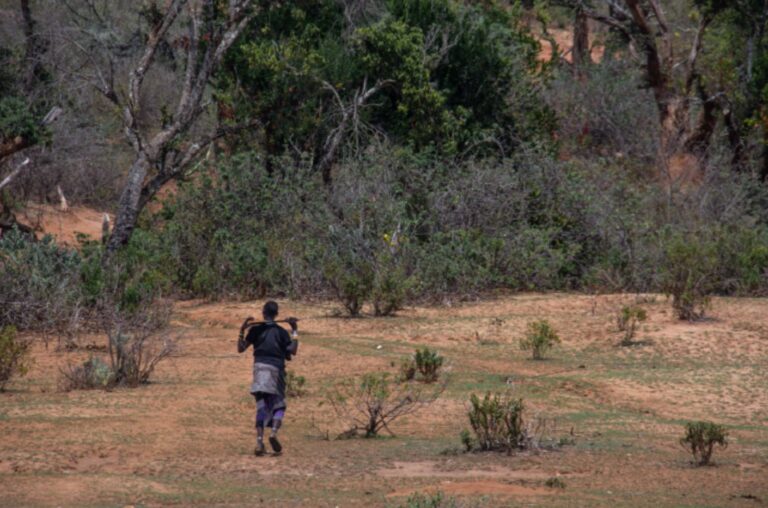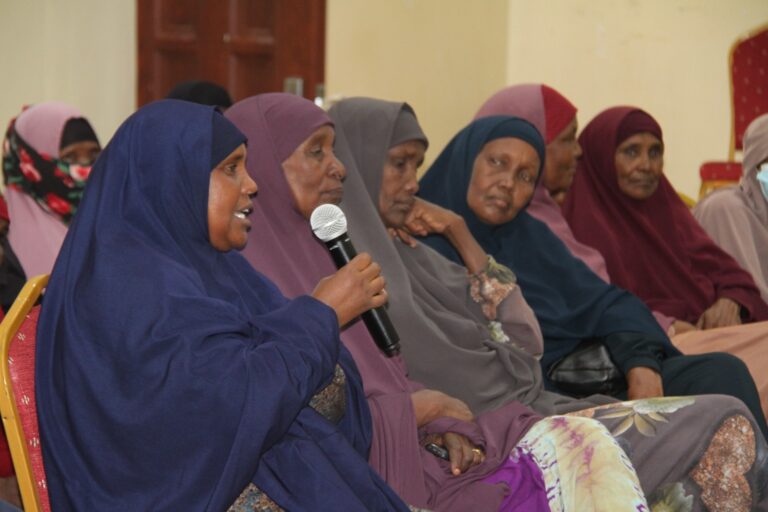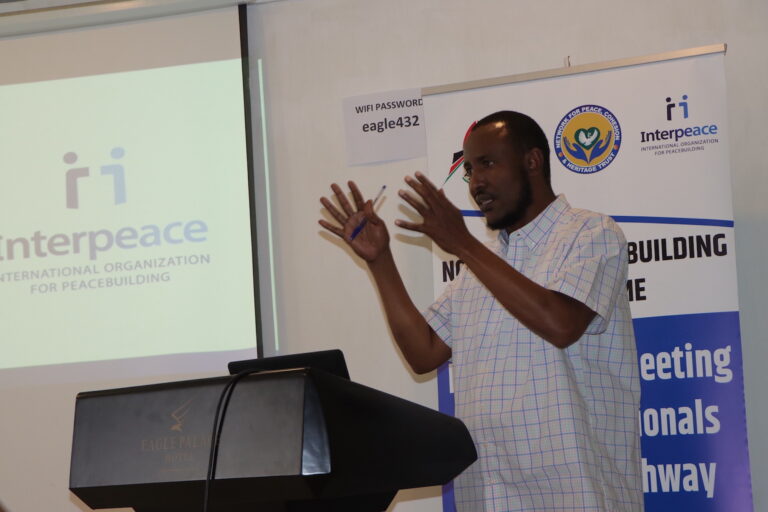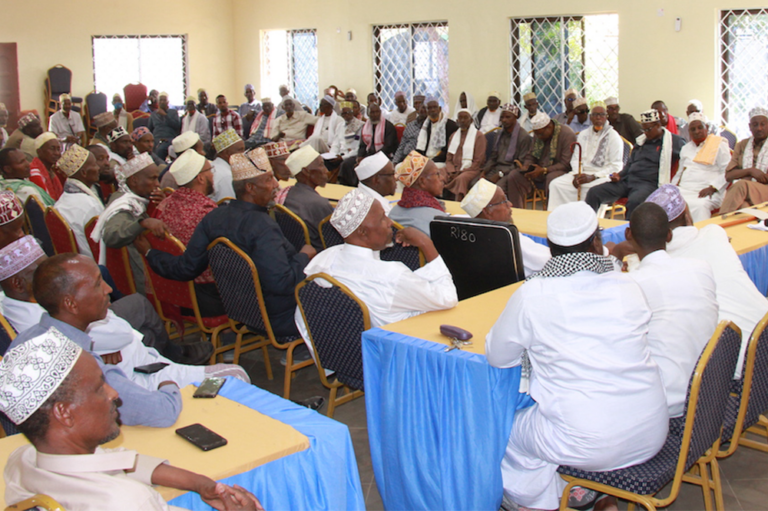The Kenya programme has so far focused on the country’s North, which has been particularly affected by unaddressed historical grievances and persisting social and economic inequalities. Interpeace has been active in Kenya since 2014, when it signed a Memorandum of Understanding with the National Cohesion and Integration Commission (NCIC); a government agency mandated to foster lasting peace and cohesion between Kenya’s various ethnic communities. This partnership was first put into practice in Mandera County, where it has achieved significant peace gains since 2016. NCIC and Interpeace interventions succeeded in largely stopping cyclical communal violence and in establishing local peacebuilding infrastructures that are widely able to manage intermittent clashes. Given this track-record, NCIC recommended in the 2018 report Footprints for Peace to adopt the approach from Mandera County as a model for locally owned and locally driven peacebuilding architectures in all the 47 counties of Kenya. After conducting rapid fragility and resilience assessments in Wajir County and the North Rift, spanning across the county borders of Turkana, West Pokot, Elgeyo Marakwet, Baringo and Samburu, NCIC and Interpeace therefore scaled up their activities to these regions in 2019. While peace, especially in the North Rift, remains very fragile, NCIC’s and Interpeace’s work has begun to bear fruits. This is illustrated by the 2021 Orwa 1 Peace Accord that put an end to decades of cyclical conflict in the Kapedo-Lokori corridor.
Looking ahead, the programme will focus on expanding its geographical footprint to a wider number of communities, particularly in Marsabit and Laikipia counties and across the border to Ethiopia and Somalia in the Mandera triangle. It will further deepen the peace gains achieved thus far by strengthening self-sustaining community-level peace infrastructures. This will be done by working closely with the Network for Peace, Cohesion and Heritage (NEPCOH) Trust, a local peacebuilding organization that emerged from the programme’s engagement in Mandera to support grassroots peace structures. Interpeace will also explore opportunities to work across other sectors, including by supporting development and humanitarian agencies to be more peace responsive and by addressing the intersections of peacebuilding with climate change, as well as mental health.
